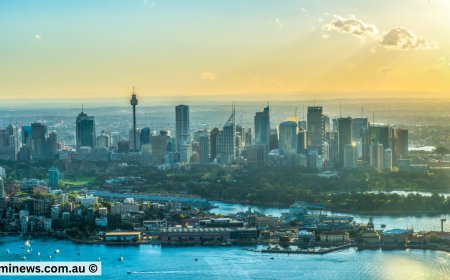Environmental Scientists (nec) Career and Immigration options for Australia
Environmental Scientists (nec) This occupation group covers Environmental Scientists not elsewhere classified
Profile Title: Environmental Scientists (nec) Career and Immigration options for Australia
Alternative Title:Aquaculture Consultant, Environmental Auditor, Soil Scientist
ANZSCO Code: 234399 | Unit Code: 2343
Skill Level: Level 1 | Work Experience: 1 Years
Assessing Bodies: Vocational Education and Training Assessment Services (VETASSESS)
Skill Occupation List (SOL): MLTSSL
Specialization: Not Defined
Profile Description: This occupation group covers Environmental Scientists not elsewhere classified
Job Duties:
- evaluating habitat, wildlife and fisheries needs, and formulating short- and long-term management goals and objectives
- enforcing laws and regulations to conserve and protect fish and wildlife
- carrying out environmental impact assessments for a wide range of development projects
- proposing solutions to address negative environmental impact
- studying the effects of factors, such as terrain, altitude, climatic and environmental change, sources of nutrition, predators and the impacts of humans, on animal and plant life
- studying and analysing pollution, atmospheric conditions, demographic characteristics, ecology, mineral, soil and water samples
- developing conservation and management policies for biological resources, such as fish populations and forests, and establishing standards and developing approaches for the control of pollution and the rehabilitation of areas disturbed by activities such as mining, timber felling and overgrazing
- implementing policies and organising activities in designated parks and other areas to conserve and protect natural and cultural heritage
- participating in management planning by providing environmental information and making inventories of plants, animals and items of cultural and heritage significance
Skill Level Description: In Australia and New Zealand: Most occupations in this unit group have a level of skill commensurate with a Bachelor Degree or higher qualification. In some instances relevant experience and/or on-the-job training may be required in addition to the formal qualification (ANZSCO Skill Level 1).
Available Visa Options (As on February 2024):
- 186 - Employer Nomination Scheme visa (subclass 186)
- 407 - Training visa (subclass 407)
- 482 - Temporary Skill Shortage (subclass 482) – Medium Term Stream
- 190 - Skilled Nominated (subclass 190)
- 489 - Skilled Regional (Provisional) visa (subclass 489) - State or Territory nominated
- 489 - Skilled Regional (Provisional) visa (subclass 489) - Family sponsored
- 485 - Temporary Graduate (subclass 485) - Graduate Work
- 189 - Skilled Independent (subclass 189) - Points-Tested
- 187 - Regional Sponsor Migration Scheme (subclass 187)
- 494 - Skilled Employer Sponsored Regional (provisional) (subclass 494) - Employer sponsored stream
- 491 - Skilled Work Regional (provisional) visa (subclass 491) State or Territory nominated
- 491 - Skilled Work Regional (provisional) visa (subclass 491) Family Sponsored
Registration or Licensing: Not Required
Industries: Environmental Scientists are mainly employed in: Professional, Scientific and Technical Services; Public Administration and Safety; and Arts and Recreation Services
Education Profile: The most common level of educational attainment for Environmental Scientists is Bachelor degree (56.0 per cent).
Job Opening: Over the five years to November 2019, the number of job openings for Environmental Scientists is expected to be average (between 10,001 and 25,000). Job openings count both employment growth and turnover (defined as workers leaving their occupation for other employment or leaving the workforce).
Age Group: The main age group is 25-34 years (33.0 per cent) and the median age is 38 years (compared to 40 years for all occupations).
Gender: The female share of Environmental Scientists is 40.8 per cent and 84.2 per cent of Environmental Scientists work full time. Average weekly hours for full time workers are 38.7 (compared to 40.2 for all occupations).
Earning: In August 2014 (latest available data) weekly earnings full-time before tax (and not including employer superannuation) were $1,519 (compared to earnings for all occupations of $1,200).
Employment: Employment for this occupation remained relatively steady in the past five years and rose moderately in the long-term (ten years). Looking forward, employment for Environmental Scientists to November 2020 is expected to grow moderately.
What's Your Reaction?
 Like
0
Like
0
 Dislike
0
Dislike
0
 Love
0
Love
0
 Funny
0
Funny
0
 Angry
0
Angry
0
 Sad
0
Sad
0
 Wow
0
Wow
0









































































































